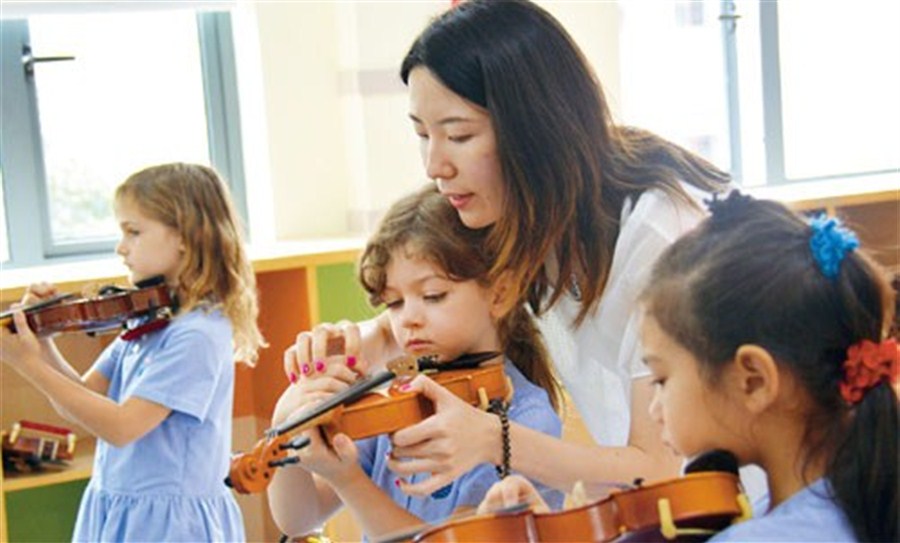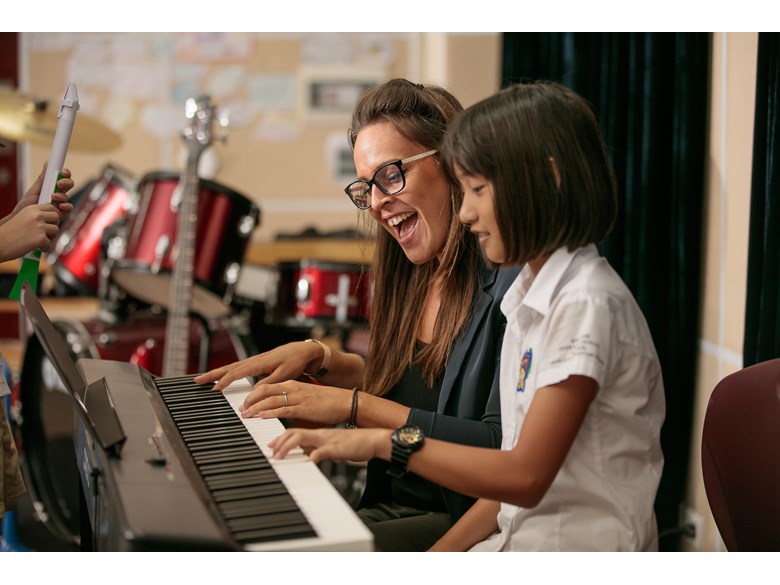Why Should Music Be A Part of Education?
Curricular activities are crucial to help a child’s skills, desires, and passions thrive, as well as being enjoyable and social. Learning to play a musical instrument is an especially enriching experience. There has long been a connection between musical training and educational achievement, but there are additional advantages.
Here are few more compelling reasons to include music teaching as a part of the education:
Table of Contents
1) Music Stimulates the Development of the Brain.
Various findings have shown that generally, a child’s intellectual grasp can be supported by understanding musical vocabulary. Students who study music do well on standardized examinations and are more likely to receive higher grades in high school, according to statistics. Musical training also physically strengthens the left side of the brain, which is involved in language and reasoning skills.
Understanding the musical language or learning to play an instrument, regardless of the child’s age, can be difficult at times. Those who study music, on the other hand, learn to be diligent in their practice, as this is the cornerstone to growth.
Children will learn a crucial life lesson by learning the importance of preparation and hard work in achieving their goals.
2) It’s Enjoyable to Listen to Music.
Children are expected to value playing an instrument until they have mastered the fundamentals. Any song they master is a personal triumph. They would have a wonderful time playing their instrument if we inspire them by listening to them or even playing along with them.
3) Music Helps Them to Concentrate and Relieves Them.
Playing an instrument or attending a music class necessitates complete focus. As a result, music is an excellent stress-relieving technique and can serve to relax the mind and improve focus.
4) Music Contributes to The Reasoning Skills of Mathematics.
Despite their apparent differences, math and music have a lot in common. Professor Gordon Shaw of the University of California said after his study about seven-year-olds in Los Angeles, “When children learn rhythm, they are studying ratios, fractions, and proportions.” It could be a fantastic way to practice Math in a creative way!
5) Music Is a Means of Expressing Oneself.
Art, in addition to being a stress reliever, can also assist children in better managing their emotions by allowing them to express themselves through words. It will allow them to articulate their feelings through the instrument they are playing.
6) Music Will Help You Develop Your Social Skills
Since music is often performed as a group, teamwork skills are learned so that all artists can work together collaboratively. Attending rehearsals and practising is often necessary in order to better the performance. Working for a common purpose will help you develop your social skills.
Dr Alexandra Lamont, Lecturer in the Psychology of Music at the University of Keele, claims that children who participate in music develop greater degrees of social interaction and comprehension of themselves and others.

